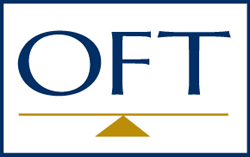Office of Fair Trading ready to take 'enforcement action' against unlawful IAPs
Protecting children from 'commercially aggressive practices'

Whatever your feelings on the growth of the free-to-play market, there's no question that in-app purchases in mobile games are here to stay - at least for the next few years.
However, the increasing number of freemium apps aimed at young children has attracted the attention of The Office of Fair Trading (OFT).
In fact, the OFT is so concerned about the possibility of game-playing youngsters being unlawfully manipulated into buying expensive IAPs that it's launched an investigation into the matter.
Specifically, the consumer protection agency is interested in identifying "potentially misleading or commercially aggressive practices" within freemium games, and holding the companies responsible to account.
Get 'em while they're youngAccording to the Consumer Protection from Unfair Trading Regulations 2008, it is illegal to make games which include "direct exhortations" to children.
This means that games targeted at minors cannot contain "strong encouragement to make a purchase".
Developers are also forbidden from creating mechanics that will "necessitate making a purchase", or direct kids to "persuade their parents or other adults to make a purchase for them".
Cavendish Elithorn of the OFT said: "We are concerned that children and their parents could be subject to unfair pressure to purchase when they are playing games they thought were free, but which can actually run up substantial costs."
.jpg)
The practice of putting expensive in-app purchases in child-centric games has been grabbing headlines of late.
Last December, we reported on Gameloft's decision to lower the cost of certain IAPs in My Little Pony: Friendship is Magic following complaints from consumers.
There have also been numerous cases - some of them resulting in lawsuits - of unattended children running up huge and unwanted bills on their parents' iTunes accounts by making excessive micro-transactions.
A persuasive argument"The OFT is not seeking to ban in-game purchases," Elithorn states, "but the games industry must ensure it is complying with the relevant regulations so that children are protected."
"We are speaking to the industry and will take enforcement action if necessary."
At this stage, the OFT cannot identify the companies that are subject to this investigation.
